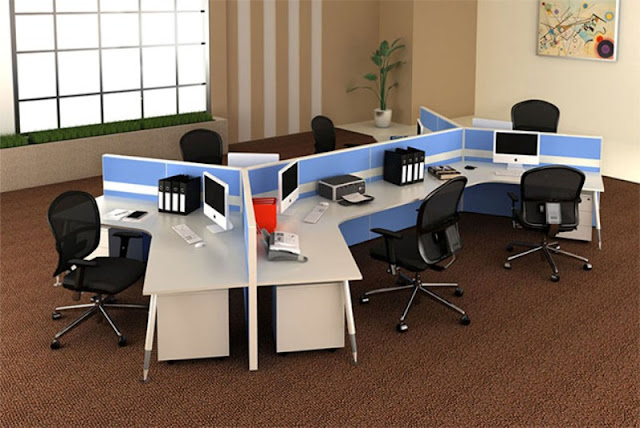
Furniture
plays a big role in your business, and the quality of that furniture can
directly impact upon the productivity of your staff and, as a result, can play
a significant role in supporting or obstructing
the operations of your business as a whole. Office chairs play a
particularly powerful role in maintaining productivity, which means that if
they are in bad-shape they can be equally powerful in holding productivity
back.
The role that
office seating plays in overall business efficiency has several dimensions.
These include:
Health,
Safety and Comfort
At best, a
worn-out, old office chair will probably not be terribly comfortable for the
worker sitting on it over the course of a whole business day. At worst, it can
create ongoing pain and even serious spinal problems in either the back or the
neck. People are not likely to get close to their peak productivity level when
they are uncomfortably shuffling around on their chair and dealing with
distracting pain. If an inferior, worn-out chair causes genuine health
problems, this will have even worse consequences and can even lead to legal
action in extreme cases.
Irritating
Problems
Office
seating, more than most other kinds of office furniture, has a tendency to develop very irritating and distracting problems
as it becomes worn-out and dilapidated. Common examples include pronounced
wobbling, a refusal to roll properly on its castors, an inability to be
properly adjusted, or an adjustable back that keeps falling out of position.
Alternatively, it may be that some key part such as an arm or a castor has a
tendency to keep falling off. These problems are not just annoying for the poor
employee who is saddled with such a chair, but a great distraction that can
seriously hold back their productivity.
The Psychological
Impact
There is much
more to these kinds of problems than the distraction they cause. They have a
wider psychological impact on employees. If your employees are given worn-out,
old office chairs that are uncomfortable, prone to annoying problems, or simply
past their best, then this sends those employees a message. It creates the
impression that they are not truly valued, and that your business is too cheap
to provide them with a decent place to sit or to update their seating when it
is clearly worn out. If that dilapidated office seating is just part of a wider
office environment in which the furniture is past its best, that message
becomes all the more powerful.
Employees who
have been made to feel undervalued in this way will have less incentive to work
at their hardest and deliver their greatest levels of productivity and overall
effort. This feeling may well be subconscious as it is unlikely your employees
will actively “slack” unless they are thoroughly miserable, but it can still
have a surprisingly strong impact. It also means your best talent is likely to
feel less loyal to your business and more inclined to look for jobs elsewhere.














